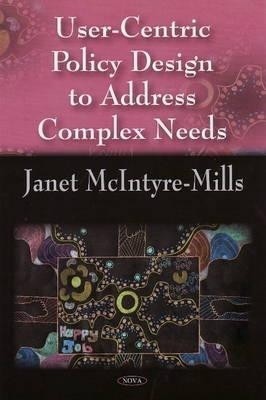User-Centric Policy Design to Address Complex Needs(English, Hardcover, unknown)
Quick Overview
Product Price Comparison
This book addresses the question: How can democracy and governance be made more accountable to diverse groups of people within nested regions? How can we address risks across spatial and conceptual boundaries? Emotions are central to policy making. Making connections is the basis for consciousness and mindfulness. The more connections we can make, the better our thinking, our policy processes and our governance outcomes will be. We need to think about our emotions and not to deny them. Emotions, values, and perceptions are central to our humanity. They underpin the so called 'enemies within', namely 'religion, morality, aesthetics and politics'. Enabling more decision making at the local level has both advantages and disadvantages. The research challenge is to find a democracy and governance process to maximise the advantages and minimise the disadvantages. This requires building organisational capacity to address accountability and the management of risk to enable people to work with diverse perceptions, interests, and issues.


